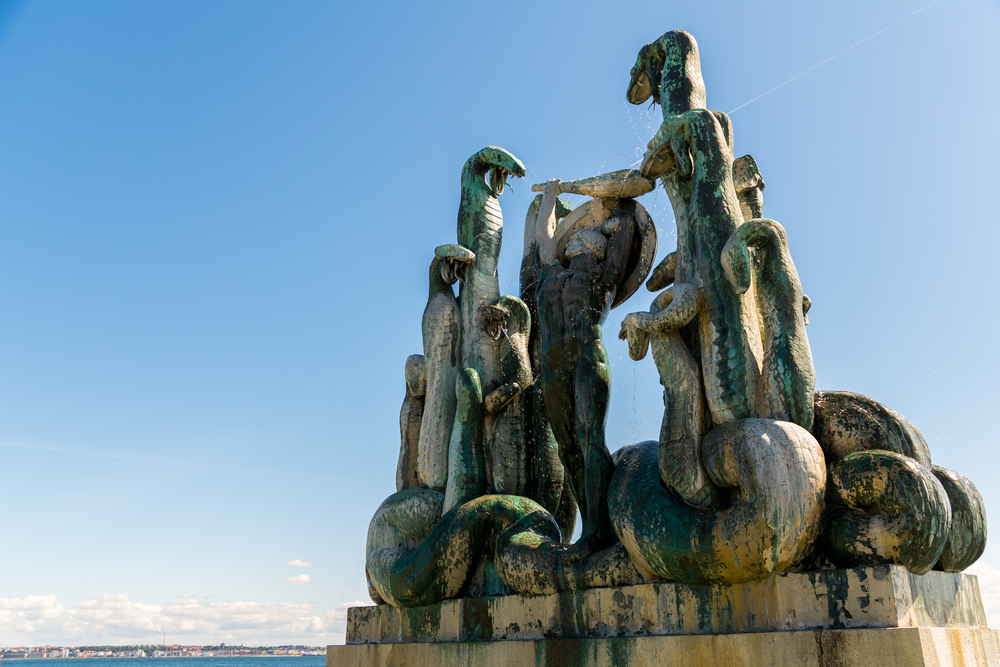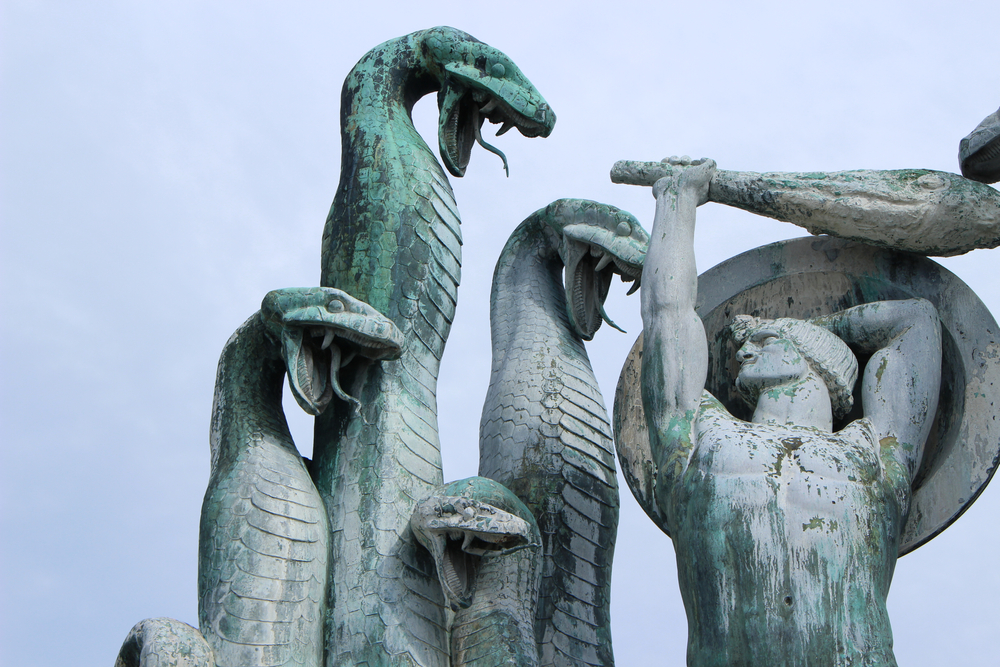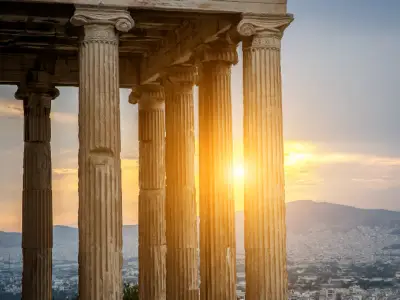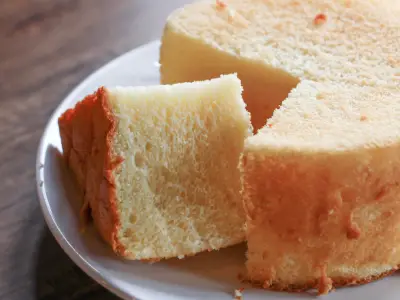Among the ancient narratives in Greek Mythology, the story of the Hydra stands out as a compelling saga of strength, cunning, and resilience. This legendary creature, a formidable foe faced by the hero Hercules, offers a fascinating glimpse into the mythological and symbolic world of ancient Greece. Let’s explore the Hydra in Greek mythology, shedding light on its myths, legends, and the powers attributed to this mythical creature.
Jump to:
What is a Hydra?

The Hydra, often called the Lernaean Hydra, is a serpentine monster in Greek mythology known for its daunting battle with Hercules. This creature is not just any ordinary monster; it is a multi-headed hydra, with the terrifying ability to regrow two heads for every one that is severed. The Hydra's lair was the lake of Lerna in the Argolid, which was considered an entrance to the Underworld.
Recommended for you!
Best SellersThe Story of the Hydra

The narrative of the Hydra is deeply intertwined with the legendary exploits of Hercules. King Eurystheus tasked the Greek god with twelve labourers; each meant to test his strength, resolve, and cunning to the limits. The confrontation with the Lernaean Hydra was the second of these daunting tasks, presenting a challenge unlike any Hercules had faced before.
Hercules' Daunting Task
Hercules set out for the swampy lake of Lerna where the beast lived. Known as an entrance to the Underworld and guarded by the Hydra, the lake was a place of darkness and mystery. The task was set to test Hercules' physical strength and ability to overcome the impossible. As he faced the Hydra, Hercules quickly realised that brute force alone would not suffice against a creature that could multiply its lethal force.
A Fierce Battle
The battle against the Hydra was fierce and seemed unwinnable. Each time Hercules slashed off a head, two more sprang up, a daunting display of the Hydra's regenerative powers. The creature's breath and blood were deadly poisons, adding further danger to the already dire situation. It became clear that Hercules needed to rethink his strategy if he was to survive.
A Turn of Tide with Iolaus' Help
In the middle of this seemingly hopeless battle, Hercules’ nephew, Iolaus, provided insight that led to a turning point. Together, they devised a new strategy: Hercules would continue to lop off the Hydra's heads, and Iolaus would use a torch to cauterise the neck stumps, preventing the regrowth of the heads. This teamwork and innovative approach allowed them to overcome the beast's regenerative ability.
The Hydra's Weakness
Despite its might, the Hydra had a vulnerability – its immortal head. Hercules discovered that one of the Hydra's heads was immortal and could not be killed. His solution was to bury the immortal head under a massive rock, demonstrating that even the mightiest challenges have weaknesses that can be exploited with clever thinking. This act symbolised Hercules’ ability to find solutions even in difficult situations.
The Hydra’s Powers and Symbolism
The Hydra possessed formidable powers, not least of which was its regenerative ability, making it nearly invincible. This aspect of the Hydra has been interpreted as a metaphor for the persistence of evil, the resilience against adversity, or the concept of chaos that cannot be easily quelled. Furthermore, the Hydra's venom was deadly, capable of killing with a single touch, adding another layer to its fearsome reputation.
The Hydra’s Legacy

The legend of the Hydra has left a mark on culture, art, and literature, becoming a symbol of resilience, regeneration, and the complexities of battling inner demons. Let’s explore the Hydra’s presence in art, statues, literature, and modern interpretations.
Artistic Inspirations: The Hydra in Visual Arts
The Hydra's dramatic battle with Hercules has inspired artists throughout the centuries. From ancient pottery depicting the fierce encounter to Renaissance paintings showcasing the dynamic struggle, the Hydra symbolises themes of struggle, resilience, and the triumph of the human spirit.
Statues and Sculptures
Sculpture has also contributed to bringing the story of the Hydra to life, with statues and sculptures showcasing the epic battle between Hercules and the many-headed monster. These works range from classical interpretations in marble, showcasing the physicality and emotion of the combat, to contemporary sculptures that reinterpret the myth for new audiences.
Literature
The Hydra has slithered through literature, influencing countless works over the millennia. In ancient texts, the Hydra's story is a cautionary tale of the importance of wit over brute strength. In modern literature, writers have drawn upon the Hydra metaphor to explore complex themes such as the nature of evil, the concept of regeneration and resilience, and the idea that some challenges become more complicated when confronted with force alone.
Modern Interpretations
In today's cultural landscape, the Hydra myth has been reimagined and repurposed in various forms, from films and television shows to comic books and video games. These modern interpretations often use the Hydra as a metaphor for societal and personal challenges, such as the fight against oppression, the struggle with personal demons, or the resilience required to face life's adversities.
The Hydra's Influence on Science and Popular Culture
Interestingly, the Hydra myth has also made its way into science. The hydra, a small freshwater organism known for its remarkable regenerative abilities, was named after the mythical creature, reflecting the myth's impact on the scientific imagination.
Frequently Asked Questions About The Hydra
Who Killed the Hydra?
It was Hercules, with the essential aid of Iolaus, who successfully defeated the Hydra by cauterising the stumps of the severed heads to prevent them from regenerating. This collaboration underscores the value of teamwork and the wisdom of seeking help to tackle difficult tasks.
Is A Medusa A Hydra?
While both Medusa and the Hydra are iconic figures in Greek mythology, they are two different monsters. Medusa, one of the three Gorgon sisters, was a formidable creature with snakes for hair and the power to turn anyone who looked directly at her into stone. The Hydra, on the other hand, is a multi-headed serpent-like monster known for its regenerative ability. Both share the common trait of being challenging adversaries within mythological tales, but they have different origins, attributes, and stories.
Is the Hydra Evil Mythology?
Labelling the Hydra as "evil" simplifies the complex symbolism this mythological creature embodies. In Greek mythology, the Hydra represents difficult challenges, the dangers of nature, or even the concept of evil that grows more formidable when faced head-on. However, it is more accurate to view the Hydra as a symbol of the trials and tribulations heroes must overcome rather than as an inherently evil creature.
Is Hydra Asexual?
The term "asexual" in its modern biological context refers to an organism capable of reproducing without sexual interaction. The mythological Hydra's regenerative ability to grow two heads for every one severed is often likened to a form of asexual reproduction. However, the myths do not explicitly describe the Hydra's reproduction method, focusing instead on its regrowth as a defensive mechanism.
Is A Hydra a Dragon or a Snake?
The Hydra is often depicted as a serpentine creature resembling a snake with multiple heads. While it shares certain characteristics with dragons—such as its reptilian appearance and fearsome nature—it is traditionally classified within Greek mythology as a serpent rather than a dragon.
Why is the Hydra Important to Greek Mythology?
The Hydra's importance in Greek mythology lies in its role as a symbol of the trials heroes must endure and overcome. Its story with Hercules, in particular, illustrates the themes of resilience, intelligence, and the necessity of strategic thinking and collaboration in facing daunting challenges.
What Was the Hydra's Weakness?
The Hydra's primary weakness was its inability to regenerate heads that were cauterised after being severed. With the help of Iolaus, Hercules exploited this vulnerability by using fire to prevent the growth of new heads. The immortal head was also vulnerable to being buried under a heavy rock, showcasing that even seemingly impossible challenges can be overcome with creativity and determination.
Are There Any Real-Life Creatures That Inspired the Hydra?
While no real-life creature directly corresponds to the mythological Hydra, the hydra, a small freshwater organism known for its remarkable regenerative abilities, shares its name and has qualities that echo the mythical creature's most famous trait.
Recommended for you!
Best SellersStudy Greek Mythology with Centre of Excellence
Discover stories of ancient gods, heroes, and mythical beasts with our Greek Mythology Diploma Course, crafted to guide you through the enchanting world of Greek myths.
Why Centre of Excellence?
- Accessibility: We firmly believe that everyone should have access to education. That's why we strive to make our courses affordable, ensuring everyone can explore the realms of ancient mythology.
- Flexibility: Our courses are tailored to fit into any lifestyle and provide the freedom to learn at your own pace. This means you can weave your quest for knowledge seamlessly into your daily life without any added pressure.
- Comprehensive Curriculum: Our course covers a broad spectrum of stories, characters, and themes, offering insights into the ancient narratives that have shaped our understanding of the world.
- Dedicated Support: Enrolment comes with personalised tutor support and access to a community of like-minded learners. This ensures you're supported, motivated, and connected throughout your learning.
Special Invitation
We’re excited to share our Greek Mythology Diploma Course for the exclusive price of £29, offering savings of over £100!













